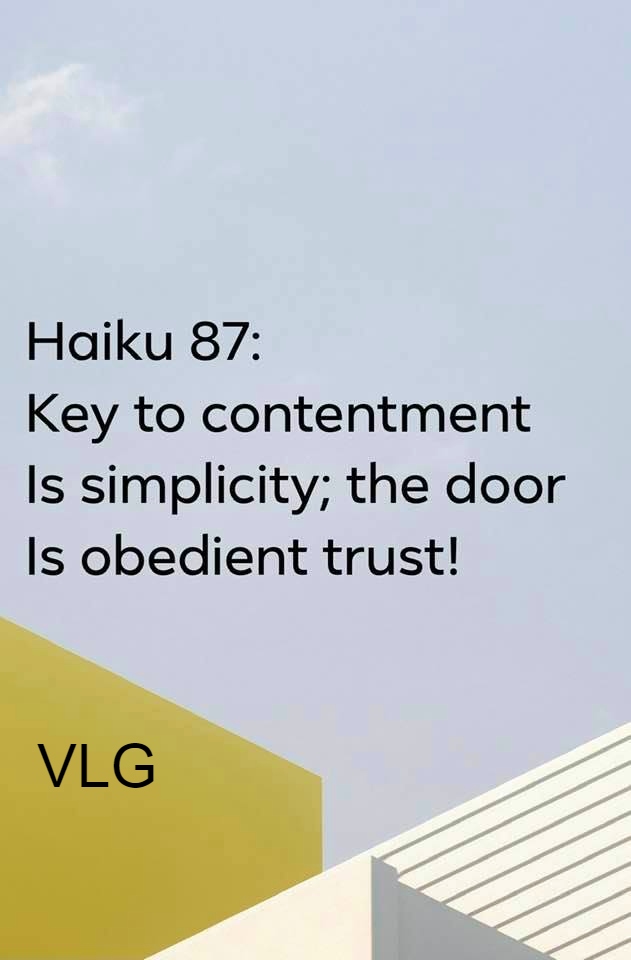
Introduction
Envy as noun refers to the feeling of discontent occasioned by someone else’s attributes, resources, or status. As a verb, it means to covet or desire those three items which belong to someone else.
Envy does not just happen instantly. It involves a process that starts with the mind questioning one’s situation in life by comparing this with what s experienced by others.
When the questioning is not addressed through wisdom by those one respects, it will grow into a profound feeling of resentment. Eventually, it will result in behavior to acquire what does not belong to oneself even to the point of crossing social, conventional, or legal boundaries.
Envy is quite different from jealousy, although some people use the two synonymously. While envy is coveting someone’s property, jealousy is desiring someone’s affection due to perceived rivalry. By its nature, jealousy is common among lovers or even friends.
The importance of clarifying the development of envy as a process is significant in understanding how to prevent it from becoming damaging to self and others.
Here are seven concrete steps to prevent the growth of envy.
1. Celebrate selfhood.

This brings one to have a closer look at oneself and not just what one possesses externally. Every one of us is significant and special.
But we will only appreciate this if we cease to look at others along with what they have and compare what we find with ourselves.
Comparing with others and finding oneself at a disadvantage starts the growth of envy. When the mind begins wondering, soon the feeling of envy is triggered.
It will not be long that the envious individual will act upon the desire to acquire what others possess.
It is therefore appropriate to start the prevention of envy by filling the mind with what is good.
The psalmist David wrote a poignant passage which reads, “When I consider Thy heavens, the work of Thy fingers, the moon and the starts which Thou has ordained, what is man that You are mindful of him?” (Psalm 8:3)
My closer look at this verse brought me to my knees regarding how important I am in the midst of God’s creative order. I must be truly significant to merit His attentive thought in the midst of the vastness, grandeur, and beauty of His creation?
The thought of God being great to create alongside being personal to attend to me just overwhelmed my heart.
Celebrating who one is and Who’s one is, is a primary deterrent towards becoming either envious or jealous. This is the reason why the primary antidote to envy is spiritual in nature.
2. Discover and develop giftedness.
Part of celebrating selfhood is to reflect that one is a created human endowed with giftedness. Every one of us has a gift that needs to be discovered and developed.

There are certain questions to ask regarding gift discovery: What am I good at doing? What do I enjoy doing the most? What is it that I do that people get encouraged?
Do you enjoy singing; are you good at it; do others get blessed when you do? Positive answers to all these would point to giftedness in music. Otherwise, do something else.
What about you? Do you enjoy painting, gardening; manipulating numbers; coordinating; teaching; serving others? Whatever you like to do has a place in this world.
Sometimes, it needs someone we truly respect to tell us where our giftedness is. But once we have discovered our giftedness, we need to develop it either formally or informally to practice it with skill.
The concept of giftedness is foundational in building a career. It is quite sad that many young adults pursue a career just for the money, even if where they derive livelihood is something they detest doing due to misalignment of giftedness.
3. Practice generosity.
People who struggle with envy have been so focused on what they lack in comparison to what others have. Thus, they fail to see their own strength and resources.
Because they are so self-engrossed, they also fail to see many who are less fortunate than they are. When we see the lack in others and practice generosity by meeting this lack, we will be prevented from full-blown envy.
“Always think of the lesser fortunate than you are!” is a common theme that I heard from my respected teacher as a child.
Envious people unfortunately are into a life of acquisition. The mindset is: they will be contented when they have what others have.
Well, I have news today. Things do not deliver true joy! Look at the stories of people who have so much and end up killing themselves through addiction or suicide. If you wish to see illustrations of this, read about the celebrities in Hollywood!
And by the way, practicing generosity is not just about donating money. It is about getting involved in others so that one makes a difference. This becomes a major deterrent towards depression! Why? Because in doing so, one’s involvement in others’ lives prevents social isolation while deriving personal joy in the process!
4. Pursue simplicity.
Simplicity is a discipline that needs to be developed urgently today. It is grounded upon the realization that life is not in things.

To live in simplicity is not to be a simpleton. It is to be freed from the complexity brought about by materialism.
A major challenge in pursuing simplicity is the educational system that promotes its opposite. You see, today, to be educated is to be complicated.
Well, as a retired teacher, I learned early on that it doesn’t matter to my students that I know Hebrew, Greek, or Latin. What is important is that I make a difference in their lives.
It is quite a saddening experience that even preachers today have been lured by this complexity to show off pedantry. So, they speak about word origins which is neither meaningful nor applicable to the listeners.
To pursue simplicity is to constantly say “No!” to the world system that dictates you and I must acquire what we want at all expense.
This system promotes the supremacy of external appearance over internal realities. Consequently, virtues are never developed in the midst of so many unnecessary things which have been accumulated.
5. Resist materialism.
This suggestion is corollary to pursuing simplicity. A few months ago, I posted on my social network this thought:
“When you sacrifice generosity for acquisition character for reputation; relationships for a position; spirituality for religion; and eternity for transition, you have drunk the sweet wine of materialism!”
The thought resonated with many.
Richard Foster wrote in his book, Freedom of Simplicity: “We buy houses we do not need to impress the people we do not like!” And my addition to this is: “With the money we still do not have!”
You and I do not have to change the model of our gadgets simply because it was advertised.
Are you aware that the use of credit cards today plays upon the psychology of human beings to acquire what they do not need now? How many have succumbed to this human tendency and consequently experienced exceeding their credit limit?
Are you also aware that if you pay a $2000-dollar debt with a minimum monthly payment for a card that charges 18%, you will spend more than 30 years doing so?
This is more time spent on having a child and raising this child to adulthood! You will be wise if you pay off your credit card every time you purchase an item.
My loving warning to all my readers is quite simple: If you do not have money now, don’t buy anything!
Not heeding to this warning is a quick recipe for financial trouble that we owe to materialism!

6. Appropriate the peace of God.
As I mentioned earlier, the primary reason why there is a struggle with envy is spiritual. Every human has a need to pacify inner restlessness that is brought about by human sinfulness.
Having things that others have becomes quite an attractive option for it keeps one busy and mistakes instant pleasure with true joy.
However, a simple question that needs to be reflected upon is this: Do the people who have these things live truly happy lives?
I assure you, without sounding preachy and judgmental, that if they have not surrendered their lives to God in full repentance, the experience of inner peace is not their portion.
Now, I am not talking about being religious here. I am talking about personally settling one’s broken relationship with the living God through His son, Jesus Christ!
You see, when we truly repent of our sins, we experience the offered forgiveness and consequently the promise of inner peace that the things of this world will never give.
But some may scoff at what I just said. This response is quite understandable because of the embedded influence of materialism stating that we can live happy lives without recognition of the sovereignty of God!
And so all kinds of stuff are bombarded upon us by the media on how to be happy in three weeks! Just try this diet, or take this pill, or go to this cruise, or buy this vacation package! And the offer is unending.
Without denying the pleasurable effect of these items, each of them will never give lasting peace!
The good news: inner peace is yours for the taking now, even as it is offered to you. Do give yourself permission to be still and appropriate what is lovingly extended.
7. Observe seasons of thankfulness.
The last but not the least of the suggestions is to permit yourself to observe regularly a season of thankfulness. You do not have to wait for the fourth Thursday of November to observe this vital suggestion.
Regularly could mean weekly or once every two weeks to set a time of undisturbed solitude to express thankfulness. Permit yourself to turn off your cellular phones so that you do not have to react whenever you hear its ding!
And what are you thankful for? The list could be quite lengthy, but perhaps you can start with the basics: life; shelter, clothing, food; giftedness; family; friendships.
Then, you can be thankful for joyful experiences; unpleasant experiences through which you have learned invaluable lessons; growth opportunities; opportunities to make a difference in others; and your growing relationship with the divine God. And your list can develop even as you go along the process.
At a much later time, when you have experienced the exhilaration of this exercise, perhaps you can be creative and invite a small group of like-minded individuals who can join with you in this season of thankfulness.
Conclusion
You can prevent envy from growing in your heart by applying the following:
- celebrating selfhood;
- discovering and developing giftedness;
- practicing generosity;
- pursuing simplicity;
- resisting materialism;
- appropriating the peace of God; and
- observing seasons of thankfulness.
The result of these suggested steps is growth of personal contentment, which becomes a powerful antidote to the development of envy.
A story is told of a very lonely king who summoned his trusted soldiers to travel through the kingdom to find the happiest person so that they can take his clothes for the king to wear.
The soldiers went north and south, east and west, and finally, they found who they thought was the happiest person in the kingdom. They were surprised to discover that he was not wearing any clothes?
This simple yet poignant story tells us that our joy is not in things.
Joyful contentment is not something we look for; it finds us when we appropriate the presence of the divine God and demonstrate this peace-abiding presence in our relationships with others!
PHOTO CREDITS:
- Featured image collage – Invidia: Eyes don’t lie by Gabriel S. Delgado C. from Puerto Ordaz, Venezuela – Envidia / Envy: Eyes don’t lieUploaded by Fæ, CC BY 2.0, https://commons.wikimedia.org/w/index.php?curid=25069207
- All other photos – Dr. Val L. Gonzales
Thank you for this very well thought out and sound advice Val
Welcome Ross.
And thanks for reading my blog.
Please feel free to share with friends
I love this beautiful reminder. Indeed, this is filled with words of wisdom that no one can reject.
I love the last sentence.
“Joyful contentment is not something we look for; it finds us when we appropriate the presence of the divine God and demonstrate this peace-abiding presence in our relationships with others!”
Yes, it’s all about our relationships with God and with others that ultimately can bring real joy and real contentment.
Thank you Pastor for your ministry of teaching and writing.
Thanks Mark for your validating response.
Shalom!
Thank you for this reminders. To God be the Glory 🙌
Thanks.
I just love this article! I read it again and again trying to identify an idea/statement that has touched me, challenged me, inspired me most but I couldn’t because every line is just as inspiring, challenging, and oh so true!!! May I share this with our group at the outreach? Can I post some lines in my FBI account with proper “recognition” of the author? (😅 I can’t remember the technical term.) Thanks so much Kuya Val! 💖
Glad to know you resonate with this article.
Yes, please share with due acknowledgment.
My dear friend, you are a reflective practitioner who walk the talk. Thank you for your insights. I’m preaching on Philippians 1:12-18 this Lord’s day and I will be sure not to use any meaningless Greek for my sheep.
Philippians 1:15
[15] Some indeed preach Christ from envy and rivalry, but others from good will.
Ha ha! You have graduated from the lure of pedantry, my good friend.
Dear Dr. Val, thank you very much for sharing the wise words and beautiful photos. I learn a lot from this article and would keep this article to share with others who may need. May God use your insight to help more people. Blessings.
Thank you for your validating response.
Warm regards!
Thank you Dr Val for your words of wisdom.
You are most welcome!
Thank you for the very comprehensive and biblical article on overcoming envy.
It’s the best I have come across on the subject of envy.
Keep up your good work for the Lord even in your retirement years. You are gifted in writing and putting things across simply, succinctly and pointedly. Please continue to write to bless and build up the body of Christ.
Thanks for your affirming response.
Shalom!
Dear Dr Val, thank you for this beautifully written piece. A timely reminder that speaks to my soul and I am certain to many. We are in need for God inspired and God led materials to help the wounded and the lost. With your permission, I will use this as my resources for the sessions and teaching/preaching for the youths.
I’m glad to read your reply indicating you resonate with the article.
Yes, go ahead and share this.
Thank you Sir for such reminders/applications that we can make the best of everything and envy is such a blockage. Simply deep and well taken.
You are welcome. May God continue to bless you in your ministry involvement.
Comparing what you have to what others have is a good way to make yourself miserable. This mindset and the focus on comparing always winds up in you noticing someone that has more than you (talent wise or property wise).
Thank you Pastor Val for reminding us the importance of a regular gratitude exercise to our life to minimize the envy.
There is often peril in comparison. Unfortunately many parents have taught early when they are prone to compare the children in their desire to encourage them to do better. But this process has become counterproductive. It ends up with the younger ones copying someone else instead of nurturing their own giftedness.
Thank you so much Dr. Val for this inspiring material bringing us closer to God and following Christlike thoughts and behavior. The world will never be enough if we don’t focus on what is eternal and heavenly. Our lives are what other people read and see. Relationship with Christ and friends should be the priority aside from knowing who God is, creator, merciful, great healer and should be our Lord for all times. Shalom
Thank you for your reply Dave, You have indeed grown tremendously in your walk with our good Lord!
“Godliness with contentment is great gain.” Though I have never really struggled with envy I find the principles you have posted to be true in every way. Finding God’s purpose for one’s life specially with one’s God given gifts coupled with the pursuit of simplicity really worked for me. I guess I have to thank my mentors, you being one of them for keeping me in the right path. Glory to God!
I am thankful that this article resonated with you. It has been a blessing to be a part of your journey Ted.
Hi Dr Val. This is definitely a post I’m going to have to read on again from time to time for the wisdom to be set free from wisdom. Envy really does feel like a slow acting venom, but life threatening, and eventually paralysing none the less. But just to be able to begin with celebrating the self as God’s beloved is already such a grace-filled start. Thanks so much for such a pastoral blog post! God bless you.
May the good Lord continue to guide you in your spiritual journey, Jack.
Such a great reminder for me about preventing envy. I totally agree with all the ways you have stated here, especially the last one, observing seasons of thankfulness. Thank you, Pastor Val, for the gentle reminder of being thankful to the One who provides for all of us. God bless!!
I’m glad to know that this is helpful; to you. Shalom!
“Thou shall not Covet!” The “Mother” of all sin!
This is why Adam and Eve succumbed to the serpent’s lure….”you will be like God…” Who doesn’t want to be like God?
We serve ourselves because we see ourselves as “god.” Self-worship is what we see all around us. And we crave for things to glorify and honor self at any expense! And this is sad!